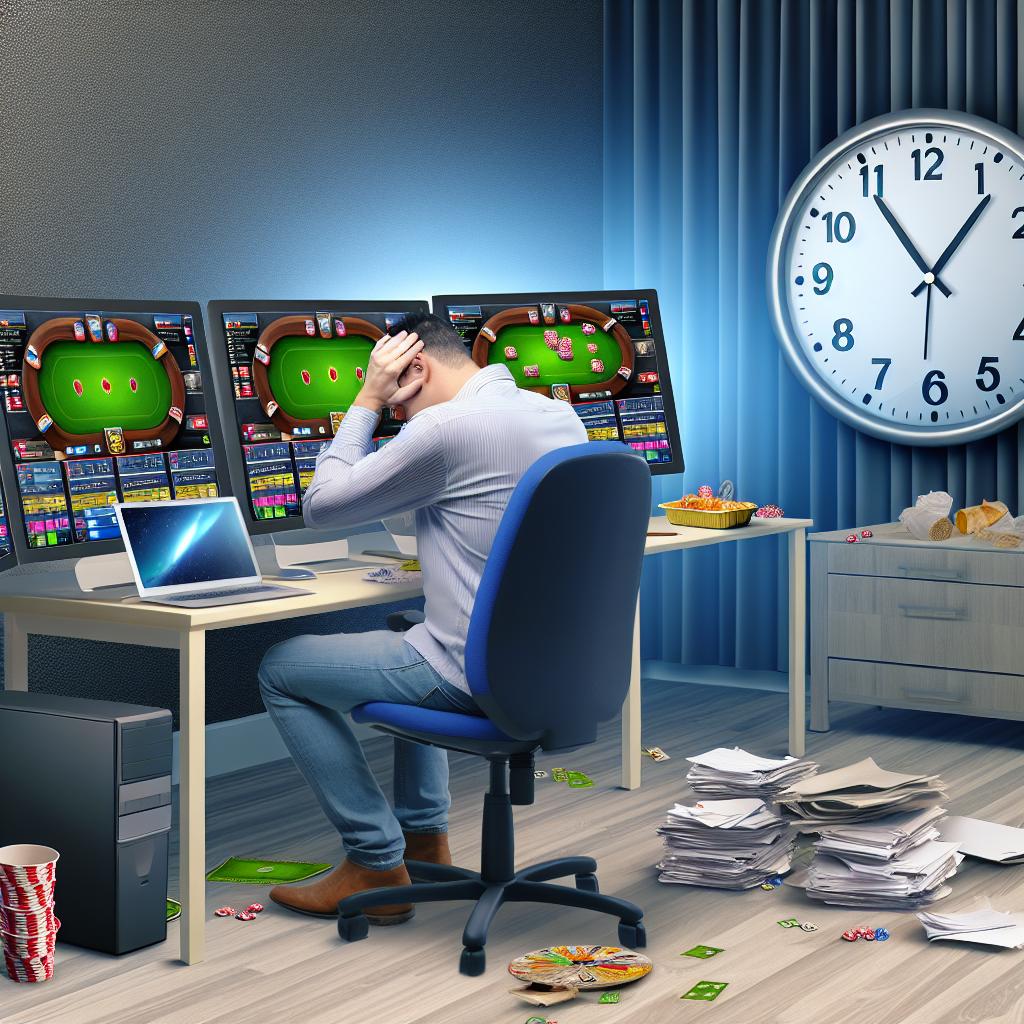Understanding Problem Gaming and Its Impact on Productivity
Gaming has become a prevalent form of entertainment across the globe. With technological advancements and the rise of digital platforms, video games are more accessible than ever before. As the availability and appeal of video games continue to grow, they have become a central component of entertainment culture. However, despite their popularity, there is a growing concern about problem gaming and its potential to negatively affect productivity. This issue is particularly important as more individuals find themselves juggling work, education, and personal responsibilities alongside their gaming habits.
Defining Problem Gaming
Problem gaming, often referred to as gaming disorder, is characterized by an excessive or compulsive use of video games that leads to significant impairment in personal, social, educational, or occupational functioning. This condition can result in substantial negative impacts on an individual’s life. It is crucial to differentiate between recreational gaming and problem gaming. Recreational gamers engage in gaming without significant negative consequences, enjoying the activity as a form of relaxation or social interaction. In contrast, individuals with problem gaming tendencies prioritize gaming over essential life activities and responsibilities, which can lead to substantial life disruptions.
Indicators of Problem Gaming
The signs of problem gaming are not always apparent, but some key indicators can help identify this issue:
– Preoccupation with gaming: Spending a considerable amount of time thinking about game strategies or upcoming gaming sessions. This constant focus on gaming can take away attention from other important areas of life, indicating a potential problem.
– Loss of control: Difficulty in reducing or stopping the gaming activity despite knowing its negative impact. This inability to control gaming time might lead to further personal and professional setbacks.
– Neglecting obligations: Ignoring personal, educational, or occupational duties in favor of gaming. When gaming takes precedence over essential responsibilities, it suggests a troubling pattern of behavior.
– Interpersonal issues: Experiencing strained relationships due to the prioritization of gaming over social interaction. This might manifest as conflicts with family or friends when gaming begins to dominate interactions.
Impact on Productivity
Problem gaming can significantly impact an individual’s productivity. The dedication of excessive time to gaming can lead to a reduction in the time available for work or study, thereby decreasing output. Moreover, gaming at the expense of sleep can impair a person’s ability to concentrate, affect their overall mood, and reduce their work efficiency.
Cognitive Effects
Engaging in repetitive and compulsive gaming behaviors can also affect cognitive functions. Problem gamers may exhibit decreased attention spans and impaired decision-making abilities, both of which are critical for maintaining productivity in various tasks. The need for continuous stimulation from gaming can dull a person’s ability to focus on more monotonous tasks, which are often essential in both academic and professional settings.
Workplace and Educational Impact
In the workplace, employees who exhibit problem gaming behaviors may demonstrate reduced job performance and increased absenteeism. Affected employees might find themselves unable to meet deadlines, or they may struggle to collaborate effectively with their peers. Similarly, students who engage in excessive gaming can experience declines in academic performance due to missed classes, incomplete assignments, or reduced study time. Educators and employers alike may notice a drop in the individual’s performance, which can have long-term consequences on career prospects and educational achievements.
Addressing Problem Gaming
Recognizing and addressing problem gaming is essential to mitigate its impact on productivity. Some practical strategies can help individuals manage their gaming habits and restore balance to their lives:
– Setting Limits: Establishing time restrictions for gaming, akin to budgeting time for other activities. Using tools such as timers or apps that monitor screen time can help individuals adhere to these limits and maintain a balance with other daily activities.
– Seeking Support: Consulting mental health professionals or support groups to develop coping mechanisms. Professionals trained in handling addiction or compulsive behaviors can provide valuable insights and techniques to manage gaming habits effectively.
– Fostering Other Interests: Encouraging engagement in alternative activities that can substitute the time spent on gaming. Pursuing hobbies such as sports, reading, or arts can offer fulfilling experiences that are both relaxing and productive.
If you or someone you know is struggling with problem gaming, it can be beneficial to seek assistance. Various organizations offer support and guidance; for example, clinical experts and support networks can be found through professional channels.
To gain more insights and assistance on problem gaming, consider exploring available resources from professional organizations in mental health and addiction recovery. Reliable information and support can be found by visiting clinical experts or consulting specialized resources. For additional information on gaming disorders from trusted authorities, consider exploring this link.
By taking proactive steps, individuals can successfully manage their gaming habits, minimizing the adverse effects on their productivity and overall life balance. Addressing problem gaming not only helps improve personal and professional outcomes but also enhances overall well-being and interpersonal relationships, leading to a more fulfilling and balanced lifestyle.

